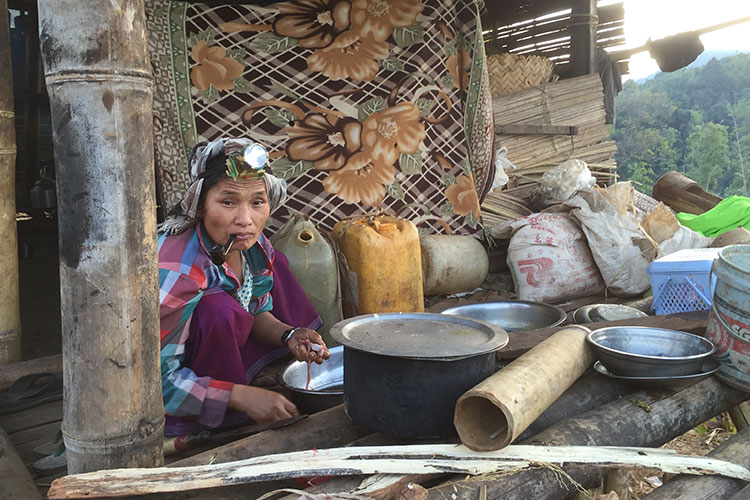
Traditional Medicine Practices
Herbs, plants, and concoctions may be used as cures by traditional healers. Traditional Karen medicine is borrowed from both Indian Ayurvedic systems, including Chinese medicine and Alchemy. Like many groups from Southeast Asia, the Karen link illness to an imbalance in natural forces (wind, water, and fire). Changes in diet are commonly used to treat illness—increasing or reducing one of six Burmese tastes (sweet, sour, hot, cold, salty, bitter).
Although traditional beliefs about health and illness are practiced and believed, the Karen also believe Western or modern medicine is a helpful cure. Traveling medical staffs or NGO’s (Non-Governmental Organizations) in refugee camps have helped them to familiarize with Western medical practices. Some people believe modern medicine can cure ailments, while others prefer to use traditional remedies.
Mental Health
Karen patients may be reluctant to report mental health problems at first. Mental health support and help is usually sought out after several or more years at a clinic. Translations between Karen Language and English for medical terminology are similar, especially for depression and anxiety. Yet, there are still complications for clear definitions in prognoses and diagnoses.
Substance Use
Smoking is part of the culture, and some male children begin as early as 10 years in age. The Karen might chew tobacco, drink whiskey and smoke cigarettes and cheroots. Smoking is usually used by Karen in Burma to keep insects away. During celebrations, weddings, or traditional ceremonies alcohol is commonly used.
Some Karen villages produce marijuana, mainly harvested to sell for profit or to feed elephants and other animals. On the contrary, the rate of amphetamine (ya ba) usage is growing in refugee camps. This is influenced by exposure of amphetamines to villages. Which is a cause of the the military distributing drugs to corrupt ethnic hill tribe villages.
The betel nut that comes from the Betel Palm Tree is a seed commonly chewed by the Karen. When chewed it produces euphoric stimulant effects because of the high levels of psychoactive alkaloids it contains. If chewed regularly, the teeth and gums become stained with red. Betel nut was once believed to prevent cavities but is a carcinogen that leads to oral cancer. The increase in mouth ulcers and gum deterioration (also leads to tooth loss) outweighs positive effects.
Harmful alcohol use is a rising problem in refugee camps and in refugee resettlement communities in the United States. The increase of alcohol use in the U.S. Karen community is influenced by conflict-related trauma, isolation and hopelessness in prolonged refugee camp settings, and stress created from resettlement and in navigating a new country. Learn more about KOM’s work to decrease Chemical Dependency in the Karen community.


 (651)788-7593
(651)788-7593


